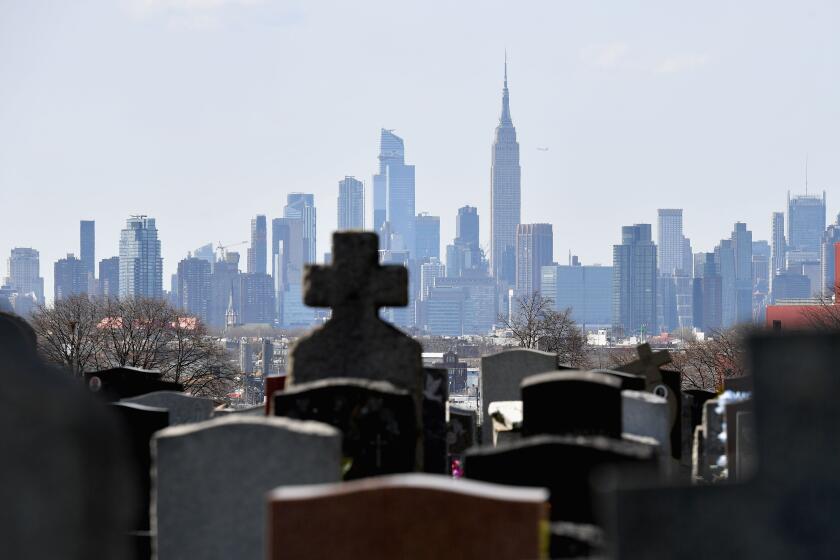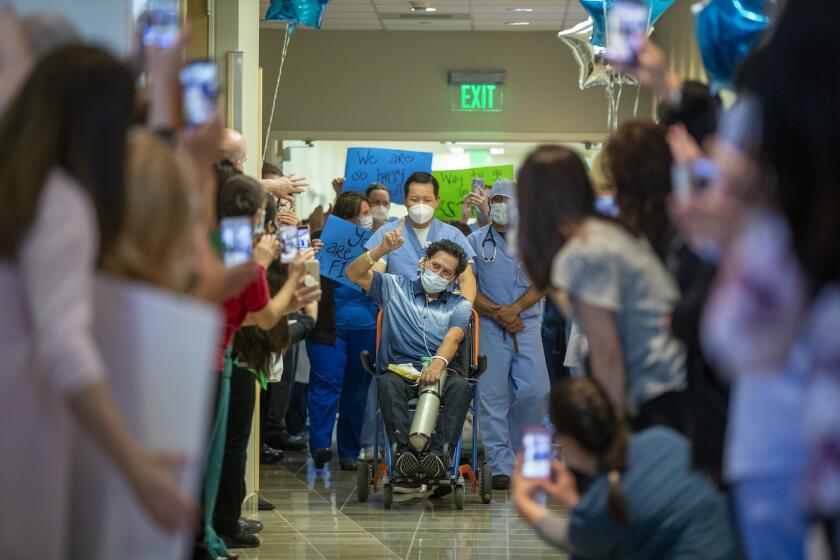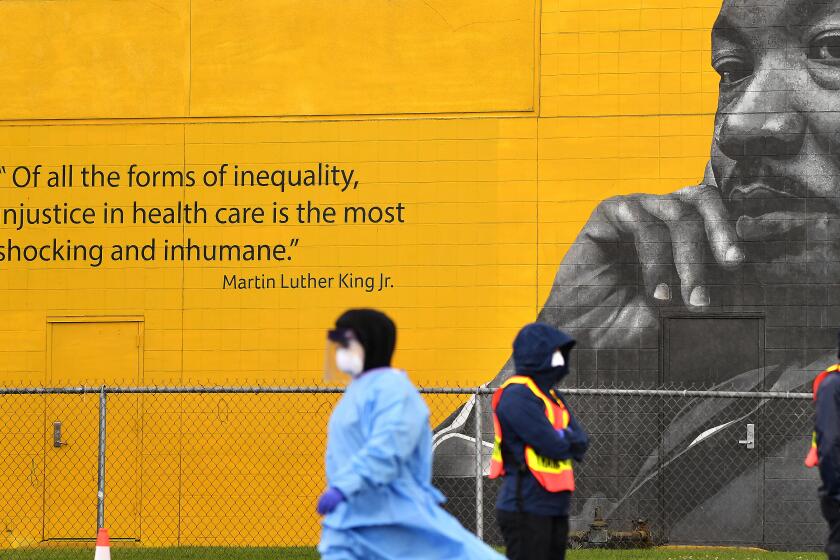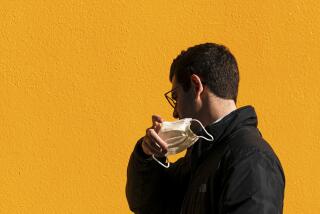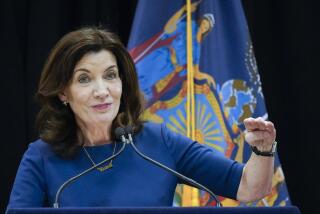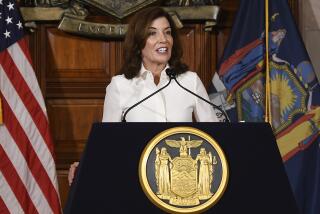‘A silent explosion’: Coronavirus deaths in U.S. climb past 16,000
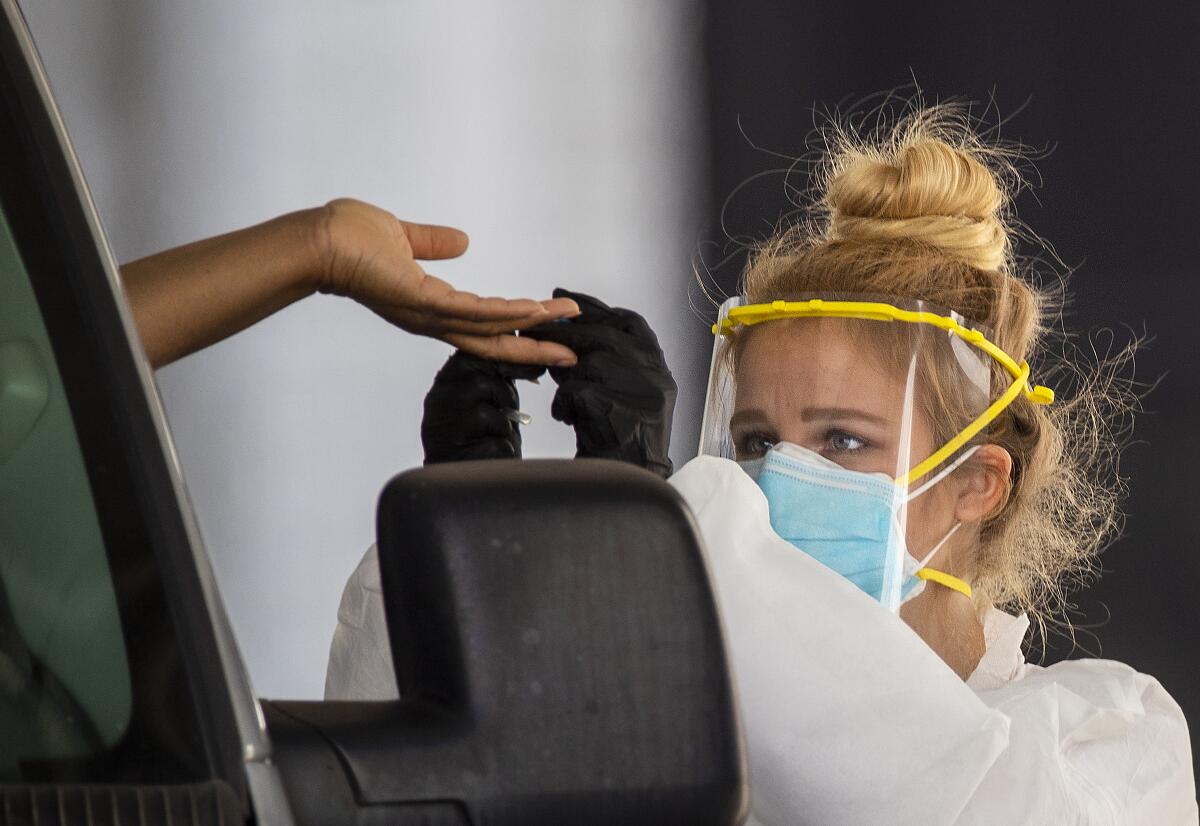
It has become a bleak morning ritual that gets worse each day: New York reached yet another peak in coronavirus deaths in 24 hours, Gov. Andrew Cuomo announced Thursday. This time it was 799.
That brought the state’s COVID-19 death toll to 7,067, by far America’s highest.
“That is so shocking and painful and breathtaking, I don’t even have the words for it,” Cuomo said, describing the outbreak as “a silent explosion that just ripples through society with the same randomness, the same evil that we saw on 9/11.”
“It’s gotten to the point, frankly, that we’re going to bring in additional funeral directors to deal with the number of people who have passed,” he said.
Fatalities nationwide surpassed 16,000 on Thursday, with especially deadly outbreaks raging around Detroit and New Orleans and health authorities on the East Coast watching an alarming rise in cases in Philadelphia, Baltimore and Washington.
Not all the news in New York was grim. The number of new hospitalizations continued to drop, affirming earlier signs that stay-at-home orders were slowing the spread of the coronavirus.
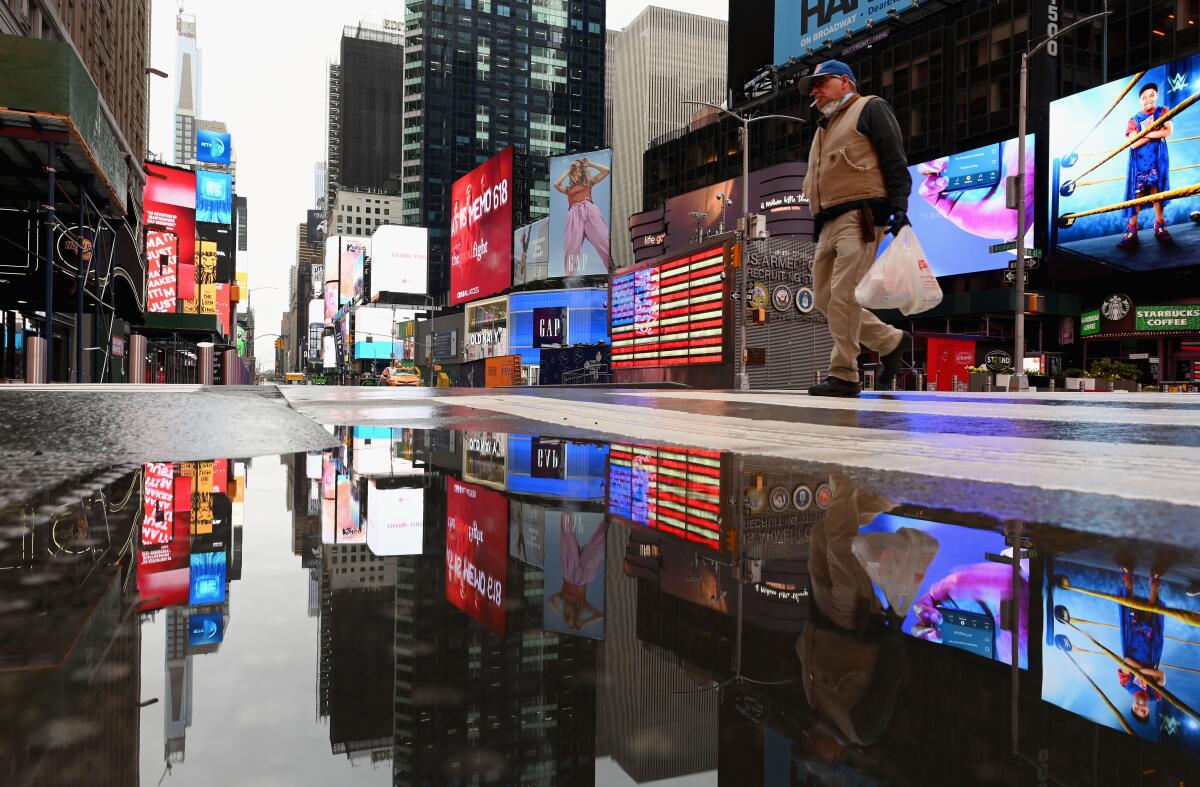
“You can’t relax,” Cuomo said. “The flattening of the curve last night happened because of what we did yesterday and the day before and the day before that.”
In Philadelphia, 26 new fatalities brought the death toll Thursday to 104, many of them nursing home residents, officials said. Like other communities around the country, the city’s jail is another center of contagion, with 61 inmates testing positive for the coronavirus.
All told, more than 5,000 people in Philadelphia have confirmed COVID-19 infections.
“Let this milestone of 5,000 confirmed cases be a reminder that we are not at all out of the woods,” Mayor Jim Kenney said.
U.S. set to pass Italy as the nation with the highest number of coronavirus deaths, and fatalities in New York help push the global COVID-19 death toll over 100,000.
In Boston, where 34 people have died of COVID-19, the caseload has continued to grow rapidly, rising to more than 2,800 confirmed cases on Thursday.
“We’re entering the most crucial part of the outbreak,” Mayor Marty Walsh said.
He urged residents to resist the impulse to hold family gatherings on Sunday, saying it would be the first Easter he has spent apart from his mother. “I’m not going to see her because I love her,” he said.
In Kansas, however, Republican state lawmakers voted to overturn an executive order by Democratic Gov. Laura Kelly to limit attendance at church gatherings and funerals. More than 1,100 people have been confirmed to have COVID-19 in Kansas, and 42 of them have died. The disease has hit more than half of the state’s 105 counties, reflecting its rapid spread across rural America.
Kelly vowed Thursday to seek state Supreme Court intervention to uphold her order.
“The actions of the Republican legislative leaders jeopardize both the health and safety of Kansans,” she said, adding, “I will not allow the rule of law or the Constitution to be trampled on during an emergency.”
These are some of the unusual new scenes across the Southland during the coronavirus outbreak.
In Michigan, the death toll has risen to 1,076, the third-highest after New York and New Jersey, where 1,590 have died. Gov. Gretchen Whitmer said she would continue to resist requests to exempt golf courses from her lockdown order.
“Every exception we make makes it more porous and less likely to be successful,” she said.
Whitmer said she’d notified Vice President Mike Pence that Michigan “faced dangerously low levels of medications required to safely place patients on ventilators” with sedation and pain relief. In response, the federal government temporarily lifted restrictions on the import of drugs that were running low, she said.
“We’re grateful, because it’s critically important,” Whitmer said.
In Ohio, where 213 people have died from COVID-19, dozens of shouting protesters tried to disrupt a coronavirus briefing by Gov. Mike DeWine at the state capitol in Columbus. They objected to his shutdown of nonessential businesses, saying it was doing too much harm to the economy.
“What I’m asking Ohioans to do is hang in there,” he said in response, Cleveland.com reported.
Far from the big coastal hubs, a hospital in Albany, Ga., is struggling with one of the fiercest coronavirus outbreaks in the nation.
DeWine compared the coronavirus to a monster. “We can’t feed it. And the way you feed it is by coming out and exposing yourself and exposing other people.”
As pain from the nation’s economic shutdown deepened — more than 16 million Americans have filed for unemployment benefits in the last three weeks — Cuomo and others warned that reopening businesses too soon risks a second wave of infections and renewed lockdowns.
New York City Mayor Bill de Blasio described three phases for society’s return to normal. In the current phase, transmission of the virus is widespread and testing is rationed, with healthcare workers and hospital patients the top priority.
In the second phase, possibly as soon as May or June, some stay-at-home restrictions could be relaxed and “you can start to make life a little more normal” with less social distancing and minimal transmission of the virus, De Blasio said.
But that depends on widespread testing for the virus, with “disease detectives” tracking down the contacts of those whose result is positive so they can be isolated, De Blasio said. He criticized the Trump administration for not making widespread testing available, saying that “there’s clearly a lot more our federal government could be doing.”
“We need the federal government to step up,” he said. “We need them to do it quickly.”
Warning of a resurgence of casualties if stay-at-home restrictions were lifted too soon, the mayor said, “The one thing I can guarantee you is we won’t jump the gun.”
The third phase, he said, would be a final conquering of the virus, with few or no cases and a return to normal.
California has seen a string of days with high fatality numbers from COVID-19 even as officials voice guarded optimism that the outbreak is easing.
More to Read
Sign up for Essential California
The most important California stories and recommendations in your inbox every morning.
You may occasionally receive promotional content from the Los Angeles Times.
